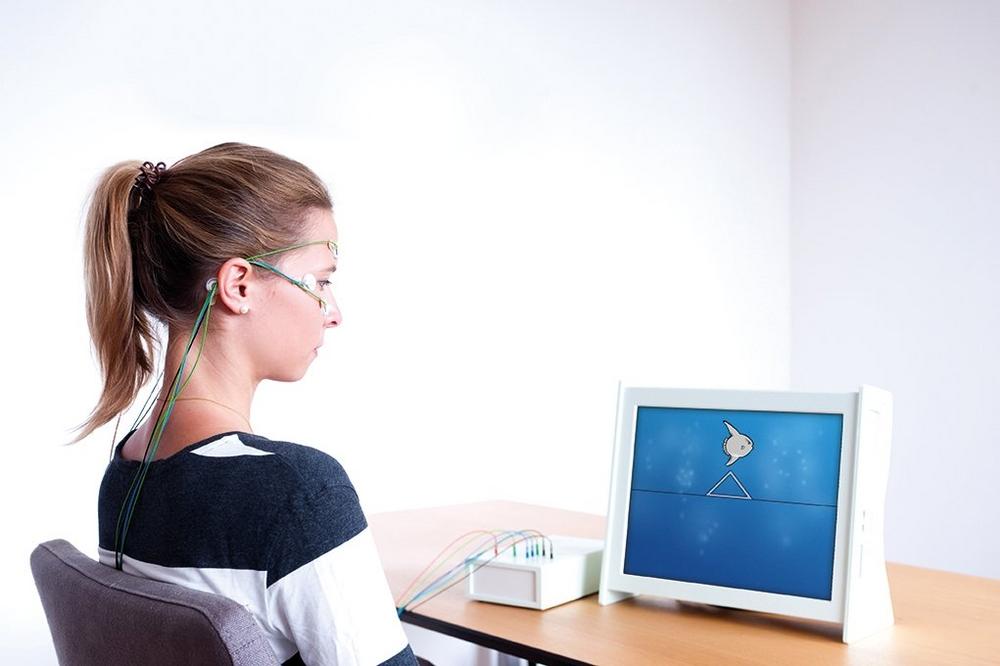Neurofeedback is a treatment where real-time feedback is provided on specific brain activity (most often the EEG) and based on learning principles participants learn to control specific types of brain activity. Based on the notion that this treatment is based on learning principles, it is expected that it should result in long-term benefits, however durability has not been systematically investigated. Given treatment with medication in ADHD is effective in short-term symptom management, and clinical benefit is likely to diminish after sustained use for more than 2 years, there is a need for treatments that result in better long-term benefits. Therefore, an international group of researchers from The Netherlands (Utrecht University, Research Institute Brainclinics, Radboud University), Germany (University Hospital Erlangen; kbo-Heckscher-Klinikum, Tübingen University, neuroCare Group), and the United States (UCLA), conducted a systematic-review and meta-analysis to investigate the long-term effects of neurofeedback and different control groups, including medication. This research group was selected to include scientists with different views on neurofeedback to interpret the data in a balanced and critical manner.
In this study, researchers compiled data of more than 500 children with ADHD comparing the results of neurofeedback, active (incl. medication), and ’non-active‘ control conditions from 10 randomized controlled studies (RCT’s) and clinical benefit was assessed after a follow-up period of on average 6 months after treatment was finished. It was found that neurofeedback resulted in a large effect on inattention and medium effect on hyperactivity/impulsivity at follow-up and at this time-point there were no differences between neurofeedback and active-treatments. For non-active controls a small effect was found only on inattention that disappeared at follow-up. Numerically, the benefits of neurofeedback tended to improve from outtake to follow-up, which was not the case for the other treatments. Furthermore, for the medication groups, medication was still used in the 6 month interval to follow-up, whereas for neurofeedback no additional treatment sessions were administered in that interval.
Concluding, these results suggest that clinical benefits achieved with neurofeedback in children with ADHD have durable effects at least over a 6-month period without treatments, positioning neurofeedback as a promising treatment with long-term benefit.
Note: The results from this meta-analysis mainly apply to the specific protocols investigated and might not generalize to other ‘experimental’ approaches implemented in many ‘neurofeedback clinics’. Currently, there is most consistent evidence for Slow Cortical Potential (SCP), Theta/Beta (TBR) and Sensori-Motor Rhythm (SMR) neurofeedback, see figure below for explanation.
neuroCare is active in the fast growing market for neurotherapy, a non invasive option for mental health, pain and rehabilitation using neuromodulation technologies integrated with psychotherapy. By measuring and modulating brain activity we help clinicians and patients to achieve significant and lasting therapeutic outcomes. We are further specialized in applying neuromodulation techniques (such as QEEG assessments) to improve diagnostics for choosing the right therapy (prognostics). This allows us to personalize treatment to the patient’s needs.
neuroCare offers treatment for psychiatric disorders, pain management and rehabilitation via its international network of neuroCare clinics. At our neuroCademy we educate professionals, researchers and clinicians in the area of neuromodulation techniques whilst neuroConn is our leading technology brand specialized in neurofeedback and neurostimulation.
neuroCare’s technology brand neuroConn has long been a leader in EEG, neurostimulation and neurofeedback technology. Its approach and implementation of slow cortical potentials (SCP) in the treatment of ADHD and epilepsy is considered the world standard in SCP-neurofeedback. Moreover, neuroConn is the leading technology brand in transcranial electric stimulation, co-determining the research in transcranial Direct Current Stimulation (tDCS), transcranial Alternating Current Stimulation (tACS) and transcranial Random Noise Stimulation (tRNS). In addition, its technology is commercially used in pain and rehabilitation management as an Original Equipment Manufacturer (OEM).
Our neuroCare clinics offer specialized and integrated treatment with personalized solutions for ADHD, insomnia, depression and OCD. In these areas neuroCare only employs state-of-the-art and evidence based techniques, integrated and embedded in a clinical-psychological setting. Personalized neurofeedback is used in the treatment of ADHD, and brain stimulation (rTMS) for the treatment of depression using only evidence based protocols.
These approaches are backed by over 15 years of scientific research implemented by Brainclinics and now offered by neuroCare. The efficacy of our treatment is published in several peer reviewed scientific publications.
For over 10 years our neuroCademy (formerly Brainclinics Education) has offered training courses for clinicians and researchers in the use of neuromodulation techniques in clinical practice and research, such as neurofeedback and rTMS. We have trained more than 1,000 professionals from over 30 different countries. Chances are a professional near you has received training from neuroCademy in the past.
neurocare group AG
Rindermarkt 7
80331 München
Telefon: +49 (89) 215471299-0
Telefax: +49 (89) 215471299-1
http://www.neurocaregroup.com
Telefon: +49 (89) 215471299-0
E-Mail: mno@neurocaregroup.com
![]()
